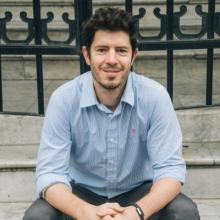Rudi Borrmann

Director of Innovation and Open Government of the Government of the City of Buenos Aires
With over 10 years of experience in the digital realm, Rudi Borrmann is the Director of Innovation and Open Government of the Government of the City of Buenos Aires. From the ministry of modernization carried out the first experience of Open Government of Argentina, developed the open data project Buenos Aires Data, and a strong open innovation policy through actions such as BA hackathon, the application contest BA Apps and the unconference of government equipment, BA GobCAMP, aimed at promoting cooperation in the public sector. Prior to this role was part of the first general direction of new media from which developed the basics of digital infrastructure GCBA. Manage alongside a team the first Laboratory of Public Innovation of the country where new ways to connect and accelerate civic projects were explored through the use of tools such as data visualization, sensors and design thinking. Rudi has a degree in Journalism, he is a member of the International Academy of Sciences and Digital Arts and has experience in academia and the private sector always related to the intersection between communication and technology.

